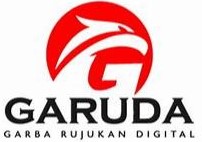- » Focus and Scope
- » Section Policies
- » Peer Review Process
- » Publication Frequency
- » Open Access Policy
- » Archiving
- » Fees
- » Reference Management
- » Plagiarism and Retraction
Focus and Scope
Focus
The focus of METAL: Jurnal Sistem Mekanik dan Termal is to publish cutting-edge research that advances mechanical and thermal engineering. The journal seeks to foster innovation and contribute to developing sustainable engineering solutions by providing a platform for rigorous, impactful, and interdisciplinary research. METAL prioritizes studies exploring emerging technologies, addressing real-world challenges, and proposing novel solutions in energy, mechanical systems, production engineering, and materials science.
Scopes
Energy Systems
METAL publishes innovative research on advancing energy technologies that drive sustainability and efficiency. The journal seeks contributions exploring developing and applying renewable energy solutions, including solar, wind, and bioenergy technologies. Studies addressing energy conversion processes—such as thermodynamic cycles, heat transfer optimization, and energy storage methods—are also welcomed. Additionally, METAL promotes research on green industry practices that integrate environmentally friendly technologies and processes for industrial sustainability.
Mechanical Systems Engineering
The journal invites original mechanical systems design, development, and optimization research. Topics include solid body mechanics and structural analysis, addressing stress, strain, and material behavior under various loading conditions. Research on vibration control and the dynamics of mechanical structures, machine construction, and mechatronics—integrating mechanical and electronic systems—is highly encouraged. Contributions in tribology focusing on friction, lubrication, and wear reduction in machinery are also sought, advancing knowledge in areas critical to mechanical performance and reliability.
Production Systems and Engineering
METAL embraces research that enhances the efficiency and productivity of manufacturing and production systems. The journal seeks product design and development articles, particularly those employing modern tools like CAD/CAM or rapid prototyping technologies. Research on production logistics and transportation systems—focusing on supply chain optimization, industrial automation, and resource management—aligns with the journal's mission to support sustainable industrial practices. Studies exploring production technology innovations, including intelligent manufacturing and Industry 4.0 solutions, are also welcomed.
Materials Engineering
The journal covers advancements in materials science with a focus on applications relevant to mechanical and thermal engineering. METAL seeks contributions to developing new materials and composites, improving strength, durability, and heat resistance. Research on nanotechnology applications—including nanomaterials, coatings, and additive manufacturing—demonstrates the journal’s interest in cutting-edge materials that enhance product performance. Studies addressing integrating advanced materials into engineering systems and their impact on production efficiency are also welcomed.
Through this comprehensive scope, METAL aims to foster an interdisciplinary approach to engineering challenges, encouraging innovation and promoting solutions that meet the evolving needs of the global engineering community.
Section Policies
Articles
Peer Review Process
METAL is using these reviewing policies:
- Every submitted paper will be reviewed by peer-reviewers.
- Reviewing process will consider novelty, objectivity, method, scientific impact, conclusion, and references.
- Reviewers will suggest the acceptance of article manuscripts.
- Editors will decide whether the manuscripts are meeting METAL's requirement. Editors' decision is final.
Publication Frequency
METAL publishes 5 - 15 articles in each edition with 5 - 20 pages in each article. One volume of METAL is divided into two editions, which are published in the 1st and 2nd semester each year. Articles are written in Bahasa Indonesia (Indonesian language) and abstract is written in English.
Open Access Policy
This journal provides immediate open access to its content on the principle that making research freely available to the public supports a greater global exchange of knowledge.
Benefits of open access for the author, include:
- Free access for all users worldwide
- Authors retain copyright to their work
- Increased visibility and readership
- Rapid publication
- No spatial constraints
However, works/articles in this journals as are bound to Creative Commons Attribution-NonCommercial-ShareAlike 4.0 International License.
Archiving
METAL stores back issues and current articles following LOCKSS idea of keeping lots of copies of our items on several servers. Archives are stored in Universitas Andalas' repository server, the university's Local Content Collection and all of them are digitally submitted to Indonesian National Library's Indonesia OneSearch and periodically harvested by OCLC WorldCat.
Fees
No fees incurred for article processing, submission, neither reviewing the articles submitted to METAL.
Under the aforementioned conditions, we are waiving in full for authors from developing countries should they need to submit and publish their papers in METAL.
Authors or other parties needed print/hard copies of the journal, an IDR 250,000/copy should be paid for the printing and binding.
Please send us an email stating your interest in printed copies and we will return to you with further details.
Reference Management
Every article submitted to METAL shall use reference management software e.g. EndNote® or Mendeley. An author of Engineering Faculty staff in Universitas Andalas has provided a concise guideline in using Mendeley as a reference manager.
Plagiarism and Retraction
METAL uses Turnitin Similarity Check as the tool in checking similarities or plagiarism in the articles. A maximum of 30% similarity index will be tolerated.
The papers published in METAL will be considered for a retraction if :
- They have clear evidence that the findings are unreliable, either as a result of misconduct (e.g. data fabrication) or honest error (e.g. miscalculation or experimental error)
- the findings have previously been published elsewhere without proper crossreferencing, permission or justification (i.e. cases of redundant publication)
- it constitutes plagiarism
- it reports unethical research
- The mechanism of retraction follows the Retraction Guidelines of Committee on Publication Ethics (COPE) which can be accessed at https://publicationethics.org/files/retraction%20guidelines.pdf.








